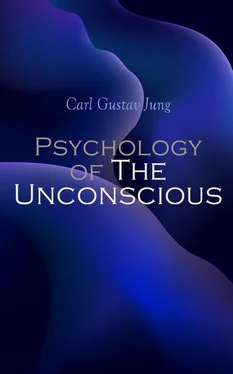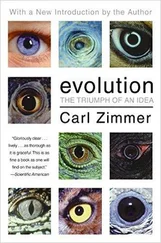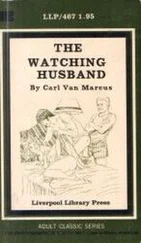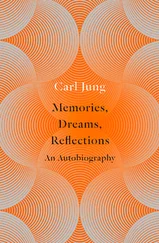Carl Jung - Psychology of The Unconscious
Здесь есть возможность читать онлайн «Carl Jung - Psychology of The Unconscious» — ознакомительный отрывок электронной книги совершенно бесплатно, а после прочтения отрывка купить полную версию. В некоторых случаях можно слушать аудио, скачать через торрент в формате fb2 и присутствует краткое содержание. Жанр: unrecognised, на английском языке. Описание произведения, (предисловие) а так же отзывы посетителей доступны на портале библиотеки ЛибКат.
- Название:Psychology of The Unconscious
- Автор:
- Жанр:
- Год:неизвестен
- ISBN:нет данных
- Рейтинг книги:4 / 5. Голосов: 1
-
Избранное:Добавить в избранное
- Отзывы:
-
Ваша оценка:
- 80
- 1
- 2
- 3
- 4
- 5
Psychology of The Unconscious: краткое содержание, описание и аннотация
Предлагаем к чтению аннотацию, описание, краткое содержание или предисловие (зависит от того, что написал сам автор книги «Psychology of The Unconscious»). Если вы не нашли необходимую информацию о книге — напишите в комментариях, мы постараемся отыскать её.
Psychology of The Unconscious — читать онлайн ознакомительный отрывок
Ниже представлен текст книги, разбитый по страницам. Система сохранения места последней прочитанной страницы, позволяет с удобством читать онлайн бесплатно книгу «Psychology of The Unconscious», без необходимости каждый раз заново искать на чём Вы остановились. Поставьте закладку, и сможете в любой момент перейти на страницу, на которой закончили чтение.
Интервал:
Закладка:
Miss Miller was under the influence of a deep erotic impression, as we have seen. Because of the sum-total of the feelings aroused by this, it does not seem that this impression was more than dimly realized, for the dream had to contain a powerful repetition. From analytic experience, one knows that the early dreams which patients bring for analysis are none the less of especial interest, because of the fact that they bring out criticisms and valuations of the physician’s personality, which previously, would have been asked for directly in vain. They enrich the conscious impression which the patient had of his physician, and often concerning very important points. They are naturally erotic observations which the unconscious was forced to make, just because of the quite universal undervaluation and uncertain judgment of the relatively weak erotic impression. In the drastic and hyperbolic manner of expression of the dream, the impression often appears in almost unintelligible form on account of the immeasurable dimension of the symbol. A further peculiarity which seems to rest upon the historic strata of the unconscious, is this—that an erotic impression, to which conscious acknowledgment is denied, usurps an earlier and discarded transference and expresses itself in that. Therefore, it frequently happens, for example, that among young girls at the time of their first love, remarkable difficulties develop in the capacity for erotic expression, which may be reduced analytically to disturbances through a regressive attempt at resuscitation of the father image, or the “Father-Imago.” [65]
Indeed, one might presume something similar in Miss Miller’s case, for the idea of the masculine creative deity is a derivation, analytically and historically psychologic, of the “Father-Imago,” [66]and aims, above all, to replace the discarded infantile father transference in such a way that for the individual the passing from the narrow circle of the family into the wider circle of human society may be simpler or made easier.
In the light of this reflection, we can see, in the poem and its “Praeludium,” the religious, poetically formed product of an introversion depending upon the surrogate of the “Father-Imago.” In spite of the incomplete apperception of the effectual impression, essential component parts of this are included in the idea of compensation, as marks, so to speak, of its origin. (Pfister has coined for this the striking expression, “Law of the Return of the Complex.”) The effectual impression was that of the officer singing in the night watch, “When the morning stars sang together.” The idea of this opened a new world to the girl. (Creation.)
This creator has created tone, then light, and then love. That the first to be created should have been tone, can be made clear only individually, for there is no cosmogony except the Gnosis of Hermes, a generally quite unknown system, which would have such tendencies. But now we might venture a conjecture, which is already apparent, and which soon will be proven thoroughly, viz., the following chain of associations: the singer—the singing morning stars—the God of tone—the Creator—the God of Light—(of the sun)—(of the fire)—and of Love.
The links of this chain are proven by the material, with the exception of sun and fire, which I put in parentheses, but which, however, will be proven through what follows in the further course of the analysis. All of these expressions, with one exception, belong to erotic speech. (“My God, star, light; my sun, fire of love, fiery love,” etc.) “Creator” appears indistinct at first, but becomes understandable through the reference to the undertone of Eros, to the vibrating chord of Nature, which attempts to renew itself in every pair of lovers, and awaits the wonder of creation.
Miss Miller had taken pains to disclose the unconscious creation of her mind to her understanding, and, indeed through a procedure which agrees in principle with psychoanalysis, and, therefore, leads to the same results as psychoanalysis. But, as usually happens with laymen and beginners, Miss Miller, because she had no knowledge of psychoanalysis, left off at the thoughts which necessarily bring the deep complex lying at the bottom of it to light in an indirect, that is to say, censored manner. More than this, a simple method, merely the carrying out of the thought to its conclusion, is sufficient to discover the meaning. Miss Miller finds it astonishing that her unconscious phantasy does not, following the Mosaic account of creation, put light in the first place, instead of tone.
Now follows an explanation, theoretically constructed and correct ad hoc, the hollowness of which is, however, characteristic of all similar attempts at explanation. She says:
“It is perhaps interesting to recall that Anaxagoras also had the Cosmos arise out of chaos through a sort of whirlwind, which does not happen usually without producing sound. [67]But at this time I had studied no philosophy, and knew nothing either of Anaxagoras or of his theories about the ‘νοῦς,’ which I, unconsciously, was openly following. At that time, also, I was equally in complete ignorance of Leibnitz, and, therefore, knew nothing of his doctrine ‘dum Deus calculat, fit mundus.’”
Miss Miller’s references to Anaxagoras and to Leibnitz both refer to creation by means of thought; that is to say, that divine thought alone could bring forth a new material reality, a reference at first not intelligible, but which will soon, however, be more easily understood.
We now come to those fancies from which Miss Miller principally drew her unconscious creation.
“In the first place, there is the ‘Paradise Lost’ by Milton, which we had at home in the edition illustrated by Doré, and which had often delighted me from childhood. Then the ‘Book of Job,’ which had been read aloud to me since the time of my earliest recollection. Moreover, if one compares the first words of ‘Paradise Lost’ with my first verse, one notices that there is the same verse measure.
“‘Of man’s first disobedience ...
“‘When the Eternal first made sound.’
“My poem also recalls various passages in Job, and one or two places in Handel’s Oratorio ‘The Creation,’ which came out very indistinctly in the first part of the dream.” [68]
The “Lost Paradise” which, as is well known, is so closely connected with the beginning of the world, is made more clearly evident by the verse—
“Of man’s first disobedience”
which is concerned evidently with the fall, the meaning of which need not be shown any further. I know the objection which every one unacquainted with psychoanalysis will raise, viz., that Miss Miller might just as well have chosen any other verse as an example, and that, accidentally, she had taken the first one that happened to appear which had this content, also accidentally. As is well known, the criticism which we hear equally from our medical colleagues, and from our patients, is generally based on such arguments. This misunderstanding arises from the fact that the law of causation in the psychical sphere is not taken seriously enough; that is to say, there are no accidents, no “just as wells.” It is so, and there is, therefore, a sufficient reason at hand why it is so. It is moreover true that Miss Miller’s poem is connected with the fall, wherein just that erotic component comes forth, the existence of which we have surmised above.
Miss Miller neglects to tell which passages in Job occurred to her mind. These, unfortunately, are therefore only general suppositions. Take first, the analogy to the Lost Paradise. Job lost all that he had, and this was due to an act of Satan, who wished to incite him against God. In the same way mankind, through the temptation of the serpent, lost Paradise, and was plunged into earth’s torments. The idea, or rather the mood which is expressed by the reference to the Lost Paradise, is Miss Miller’s feeling that she had lost something which was connected with satanic temptation. To her it happened, just as to Job, that she suffered innocently, for she did not fall a victim to temptation. Job’s sufferings are not understood by his friends; [69]no one knows that Satan has taken a hand in the game, and that Job is truly innocent. Job never tires of avowing his innocence. Is there a hint in that? We know that certain neurotic and especially mentally diseased people continually defend their innocence against non-existent attacks; however, one discovers at a closer examination that the patient, while he apparently defends his innocence without reason, fulfils with that a “Deckhandlung,” the energy for which arises from just those impulses, whose sinful character is revealed by the contents of the pretended reproach and calumny. [70]
Читать дальшеИнтервал:
Закладка:
Похожие книги на «Psychology of The Unconscious»
Представляем Вашему вниманию похожие книги на «Psychology of The Unconscious» списком для выбора. Мы отобрали схожую по названию и смыслу литературу в надежде предоставить читателям больше вариантов отыскать новые, интересные, ещё непрочитанные произведения.
Обсуждение, отзывы о книге «Psychology of The Unconscious» и просто собственные мнения читателей. Оставьте ваши комментарии, напишите, что Вы думаете о произведении, его смысле или главных героях. Укажите что конкретно понравилось, а что нет, и почему Вы так считаете.












